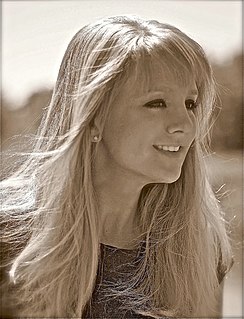A Quote by John Legend
I was an English major in college who concentrated in African-American literature and culture. So I read quite a few slave narratives and stories of escape, and I grew up in Ohio, which was a common stop on the Underground Railroad.
Related Quotes
I think acting came later in life when I went to college. I started out there. I wasn't a big star in the school plays or anything. I guess I just really liked stories. I was an English-literature major, and that's all about stories and narratives. Film and theater are very powerful storytelling mediums. You sit in a dark room and enter another world. I love that as a member of the audience, and I sort of wanted to get on the other side.
The English tourist in American literature wants above all things something different from what he has at home. For this reason the one American writer whom the English whole-heartedly admire is Walt Whitman. There, you will hear them say, is the real American undisguised. In the whole of English literature there is no figure which resembles his - among all our poetry none in the least comparable to Leaves of Grass
I changed my major to English literature, which was on the advice of my father. I finally said, "You know, Dad, to heck with it: I'm just going to be an actor. But I'm going to go to school." And he said, "Well, if you're going to go to school, then major in English literature. Those are the tools you are going to be working with as a man who's going to be acting in English, one would assume."
The first slave came to Florida in 1526. The first one we know by name, Esteban, which means Stephen, came a couple of years later. So, we start with the stories of Juan Garrido and Esteban to show that African-American people have been here a century longer than anyone thought, and that the diversity we see in the African-American community today has existed since the beginning.
So in Jamaica it is the aim of everybody to talk English, act English and look English. And that last specification is where the greatest difficulties arise. It is not so difficult to put a coat of European culture over African culture, but it is next to impossible to lay a European face over an African face in the same generation.


































